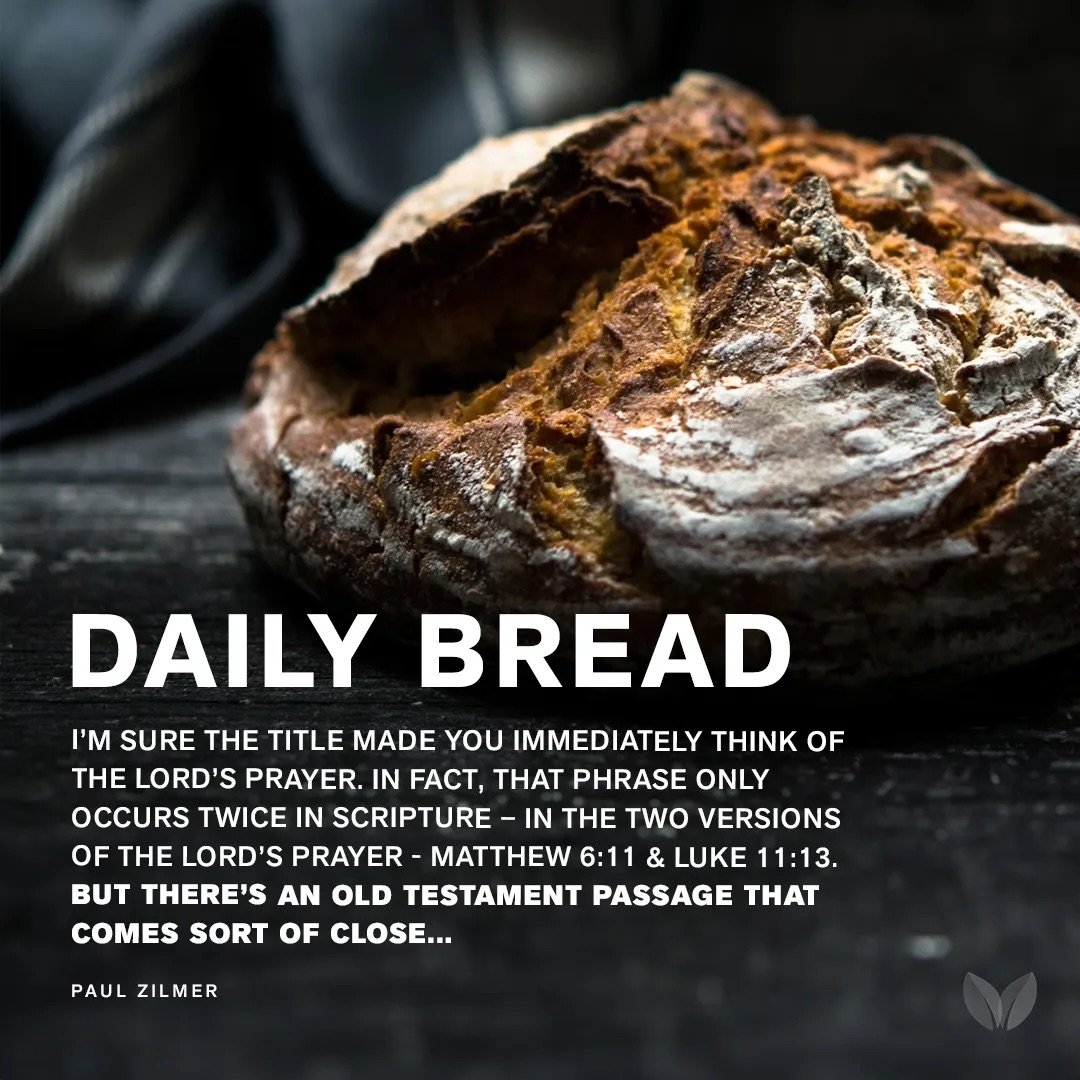Daily bread
I’m sure the title made you immediately think of the Lord’s prayer. In fact, that phrase only occurs twice in scripture – in the two versions of the Lord’s prayer. “Give us this day our daily bread.” (Matthew 6:11) “Give us each day our daily bread.” (Luke 11:13)
But there’s an Old Testament passage that comes sort of close. The prophet Jeremiah was terribly mistreated by officials in the government of King Zedekiah, during the siege that would end in the exile of many Jews to Babylon. Jeremiah had an opportunity to speak with the king, and he pleaded for his life. In response, “King Zedekiah gave orders, and they committed Jeremiah to the court of the guard. And a loaf of bread was given him daily.” (Jeremiah 27:21) Having assurance of a piece of bread every day was a big deal, in the famine of the siege.
I wonder if this was in Jesus’s mind when he taught his disciples to pray. Never in my life have I faced not knowing if I would have something to eat that day. Perhaps you have; certainly there are people who have such terrible uncertainty. But, was this part of the Lord’s prayer intended only for those in such desperate need?
Jesus had more to say about bread. In his wilderness temptation, the Lord quoted Moses when he was tempted to use the Spirit power to feed himself: “Man shall not live by bread alone, but by every word that comes from the mouth of God.” (Deuteronomy 8:3, Matthew 4:4) Clearly, to Jesus “bread” was something more than literal nutrition. It was a figure for spiritual sustenance.
Later on he would say, “I am the bread of life; whoever comes to me shall not hunger, and whoever believes in me shall never thirst… I am the living bread that came down from heaven. If anyone eats of this bread, he will live forever.” (John 6:35, 51) And at the last supper, “As they were eating, he took bread, and after blessing it broke it and gave it to them, and said, ‘Take; this is my body.’ ” (Mark 14:22)
We are very likely on the right track if we take the prayer for “daily bread” as meaning much more than physical nourishment. But look at how apt this figure is! We need, truly need, physical sustenance every day, and we are in a desperate situation if we don’t know whether we’ll have any today. That, Jesus says, is exactly the situation spiritually as well. We need spiritual bread every day too—the word of God, and Jesus himself. If we don’t get it, we’re in deep trouble.
There’s another facet to this prayer for daily bread, which I’ve just now noticed. It’s plain to any reader that the two versions of the Lord’s prayer aren’t identical. They were given at different times—the Matthew version as part of the Sermon on the Mount, given to a crowd; the Luke version later on, given to the disciples only, when they asked him to teach them to pray. The two versions of the prayer are very similar, but there are subtle differences, and it’s one of these that I’ve just noticed.
On the mountain, Jesus said to pray, “Give us this day…” To the disciples he said to pray, “Give us each day…” The first is more temporary—just today. The second is ongoing. I’m still working on what, if anything, to make of the difference. Maybe he just used slightly different words on the two occasions, as any of us might do.
There’s another question about this prayer. The Greek word translated “daily” (in most versions) only appears in these two passages, nowhere else. There is some question about the derivation of the word. Some scholars suggest the phrase should be rendered, “bread for tomorrow,” and some versions even include this alternative in a footnote. Does Jesus teach us to pray for today’s bread? This kind of fits Matthew’s immediacy, “Give us this day…” Or is he teaching us to pray for tomorrow’s bread, kind of fitting Luke’s ongoing, “Give us each day…”
Probably I’m picking this apart more than I ought to. We have both an immediate need, today, and an ongoing need, each day, for taking in the word of God and taking in His Son Jesus. Surely this is the vitally important point.
Jeremiah got a bit of bread daily. It kept him alive. He would have been without hope of surviving without it. The spiritual parallel is meant to come powerfully home to us. Would Jeremiah have turned down his daily bread? How foolish is it if we turn down the daily sustenance of the word of God? If we decide that today we don’t need to feed on the “living bread” of the Lord Jesus?
Love, Paul


